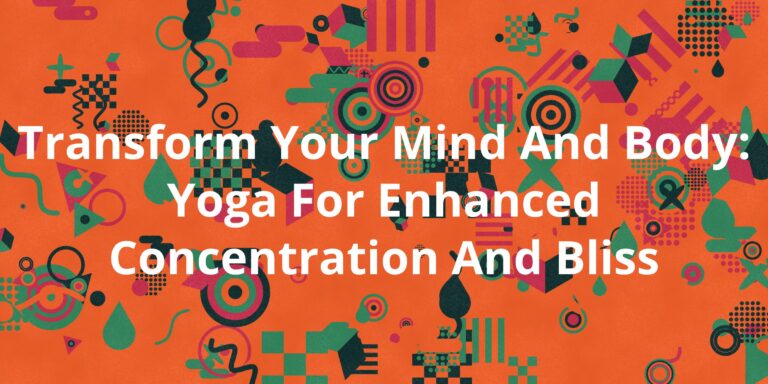The Power of Yoga: Harnessing the Emotional Benefits for a Healthier Life
Yoga is an ancient practice that has been around for thousands of years. It originated in India and is based on the principles of harmony between body, mind, and spirit. Yoga has gained popularity worldwide due to its numerous physical, mental, and emotional benefits. In this article, we will explore the power of yoga and how it can help you lead a healthier life by harnessing its emotional benefits.
Physical Benefits of Yoga
Yoga is known for its physical benefits. It helps improve flexibility, strength, balance, and posture. Practicing yoga regularly can also help reduce the risk of chronic diseases such as heart disease, diabetes, and high blood pressure. Additionally, yoga has been shown to improve digestion, sleep quality, and overall well-being.
Emotional Benefits of Yoga
In addition to its physical benefits, yoga also offers numerous emotional benefits. One of the most significant benefits is stress reduction. Yoga helps reduce cortisol levels in the body, which is a hormone that causes stress. By practicing yoga regularly, you can learn to manage your stress levels and improve your overall mental health.
Another emotional benefit of yoga is increased self-awareness. Yoga encourages mindfulness and helps you become more aware of your thoughts, feelings, and emotions. This increased awareness can lead to better decision-making, improved relationships, and a greater sense of control over your life.
Yoga also helps improve mood and emotional regulation. By practicing yoga regularly, you can learn to manage your emotions and reduce negative emotions such as anger, fear, and anxiety. Yoga has been shown to increase levels of gamma-aminobutyric acid (GABA) in the brain, which is a neurotransmitter that helps regulate mood and reduce stress.
The Power of Meditation in Yoga
Meditation is a key component of yoga practice. It helps you focus your mind and develop concentration, which can lead to increased self-awareness and emotional regulation. Meditation has also been shown to reduce stress, anxiety, and depression. By practicing meditation regularly, you can improve your overall mental health and well-being.
Breathwork in Yoga
Breathwork is another important component of yoga practice. Breathing exercises or pranayama help you regulate your breath and calm your mind. By focusing on your breath, you can reduce stress, anxiety, and negative emotions. Additionally, breathwork has been shown to improve cardiovascular health and increase lung capacity.
The Power of Positive Thinking in Yoga
Yoga encourages positive thinking and a positive attitude towards life. By practicing yoga regularly, you can develop a more positive outlook on life and reduce negative self-talk. This can lead to improved relationships, increased confidence, and better overall mental health.
Conclusion
The power of yoga lies in its ability to improve both physical and emotional well-being. Yoga helps reduce stress, anxiety, and depression while improving overall mood, emotional regulation, and self-awareness. By incorporating yoga into your daily routine, you can lead a healthier and more fulfilling life. Whether you are new to yoga or have been practicing for years, there is always something new to discover and learn. So why not give yoga a try and experience the power of mindfulness, breathwork, and positive thinking for yourself?



